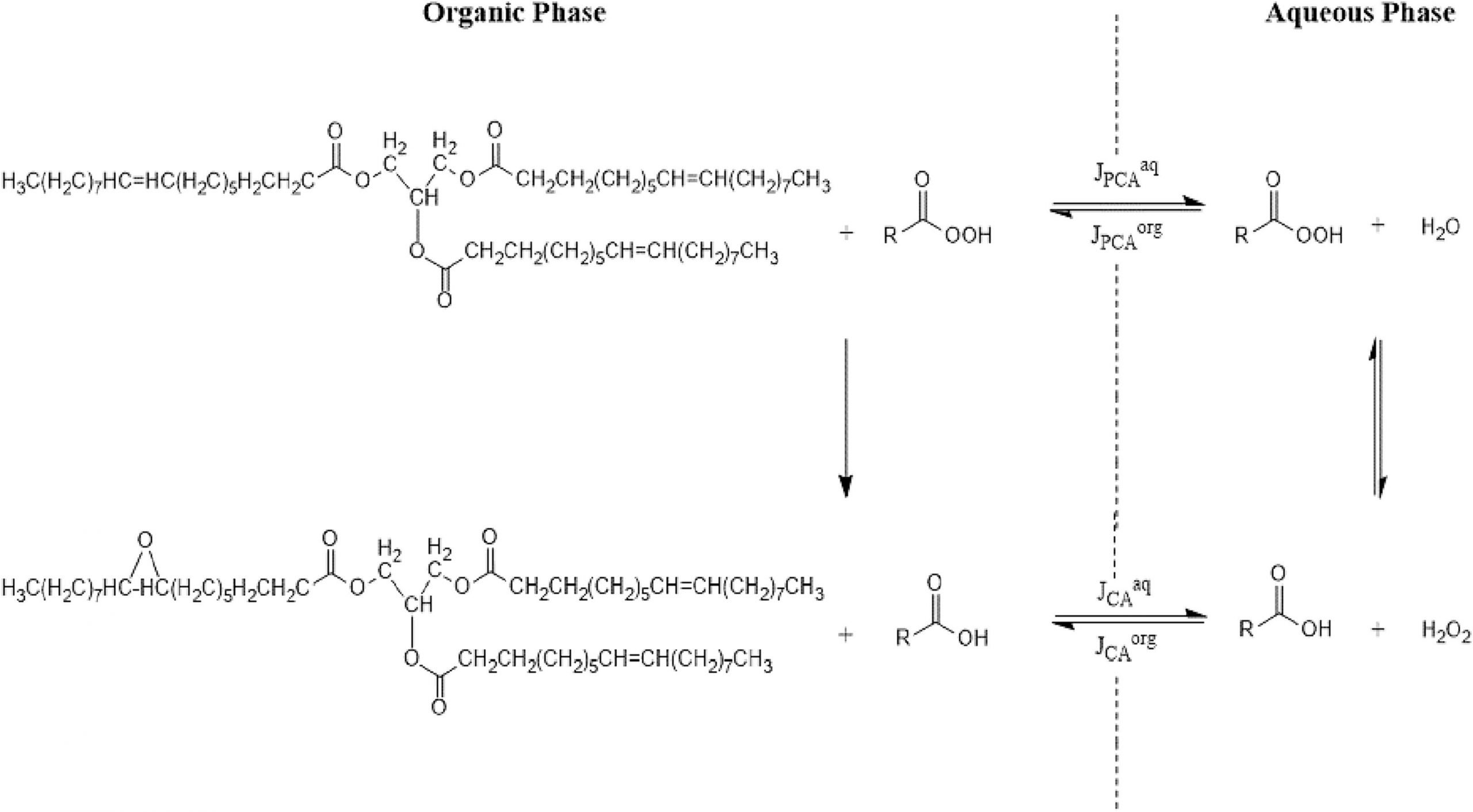Epoxidation of vegetable oils in continuous device: kinetics, mass transfer and reactor modelling
T Cogliano, V Russo, K Eränen, R Tesser, M Di Serio, T Salmi
Chemical Engineering Science (2004) 294, 120079
https://doi.org/10.1016/j.ces.2024.120079
Abstract
Epoxides are an attracting class of molecules thanks to their highly reactivity given by the strain three-terms ring. For this reason, epoxides are important intermediates for the synthesis of several organic compounds. Epoxidized vegetable oils (EVOs) obtained from biomass, represent a noteworthy source for valuable chemicals. EVOs have already been successfully applied as stabilizers and scavengers in PVC and, after follow-up reactions, as plasticizers in PVC as well as intermediates to produce polyurethane. However, the industrial production of EVOs still relies on a cumbersome and dangerous semibatch technology, limiting the productivity of this platform chemical. A new, continuous and safe technology for the production of EVOs from non-edible vegetable oils was developed in this work. Cardoon seed oil was used as a model system. A continuous reactor configuration consisting of a packed column, was constructed and its performance was successfully demonstrated, leading to double bond conversions exceeding 95 % and epoxide selectivities 90 % at 40 °C, clearly exceeding the performance of the current semibatch process. The reaction system was studied in detail and a dynamic liquid–liquid reactor model was developed, based on the intrinsic kinetics, interfacial mass transfer and axial dispersion effects.

